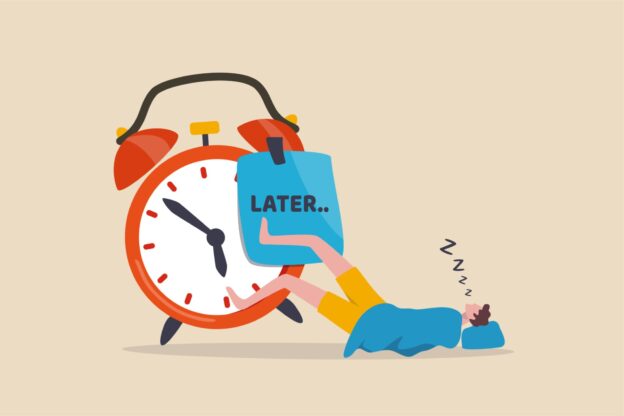Effects of Procrastination on Mental Health
Procrastination, I’m sure you’ve heard of it. It’s that pesky behavior when we put off tasks until the last minute, right? Yep, we’ve all done it! Whether it’s a work project, academic assignment, or personal goal, delaying tasks can be hard to resist. Although procrastination may seem like a fool-proof method for some, the effects of procrastination on mental health can be detrimental. At Centered Recovery, we work with our clients to help them be more present and mindful about their actions. This can help in making plans to tackle big (or small) tasks, and ease the mental burden of daily responsibilities!
Understanding Procrastination
Procrastination is the act of delaying or postponing tasks, often despite knowing that doing so may lead to negative consequences. It can manifest in various forms, from small everyday chores to significant life decisions. The reasons behind procrastination are complex and multifaceted, but some common factors contribute to this behavior.
Fear of Failure
One of the primary reasons people procrastinate is the fear of not meeting expectations. The anxiety associated with potential failure can be paralyzing, leading individuals to delay tasks to avoid confronting their own perceived inadequacies.
Lack of Motivation
When a task lacks immediate rewards or doesn’t align with personal goals, motivation to start and complete it diminishes. Procrastination often thrives in the absence of a clear incentive or sense of purpose.
Task Difficulty and Complexity
Tasks that are perceived as challenging or complex may trigger procrastination. Individuals may postpone these tasks due to feelings of overwhelm or a belief that they lack the necessary skills to tackle them.
Short-Term Benefits vs. Long-Term Consequences
Procrastination offers short-term relief by providing a temporary escape from the stress and discomfort associated with tasks. The sense of freedom and ease during the procrastination phase can be nice in the moment, leading individuals to prioritize immediate gratification over long-term goals. However, the long-term consequences of procrastination can be severe. Missed deadlines, compromised work quality, and increased stress levels are just a few examples! Chronic procrastination can hinder personal and professional growth, leading to missed opportunities and unfulfilled potential.
Impact on Mental Health
Procrastination takes a toll on mental health, contributing to increased stress, anxiety, and a sense of guilt. The constant cycle of delaying tasks and then scrambling to complete them can lead to burnout, negatively affecting overall well-being. Persistent procrastination may also contribute to feelings of low self-esteem and a diminished sense of self-worth.
Tips to Overcome Procrastination
Break Tasks into Smaller Steps
Divide large tasks into smaller, more manageable steps. This makes the overall goal less intimidating and helps build a sense of accomplishment as each step is completed.
Set Clear Goals and Deadlines
Clearly define your goals and set realistic deadlines. Having a clear roadmap provides direction and a sense of purpose, reducing the likelihood of procrastination.
Create a Reward System
Establish a system of rewards for completing tasks. Celebrate small victories along the way, reinforcing positive behavior and motivation.
Eliminate Distractions
Identify and eliminate potential distractions. Create a focused work environment to enhance concentration and productivity.
Cultivate a Growth Mindset
Embrace challenges as opportunities for growth. Adopting a growth mindset helps shift the perspective on difficult tasks from threats to learning experiences.
While it may offer short-term relief, the effects of procrastination on mental health are wide and not beneficial in the long-term. This means, implementing strategies to overcome procrastination is crucial for personal and professional development. By breaking tasks into smaller steps, setting clear goals, and fostering a growth mindset, individuals can navigate the challenges of procrastination and ultimately lead more fulfilling, productive lives!
Are you ready to take the first step toward recovery? Visit Centered Recovery Programs today and embark on your journey towards sobriety. Call us today at 800-556-2966 to speak with an admissions counselor!
Written by Jennifer Lopes, BS Psy






